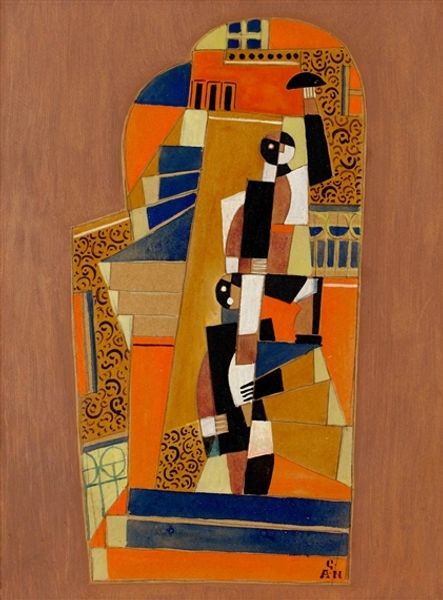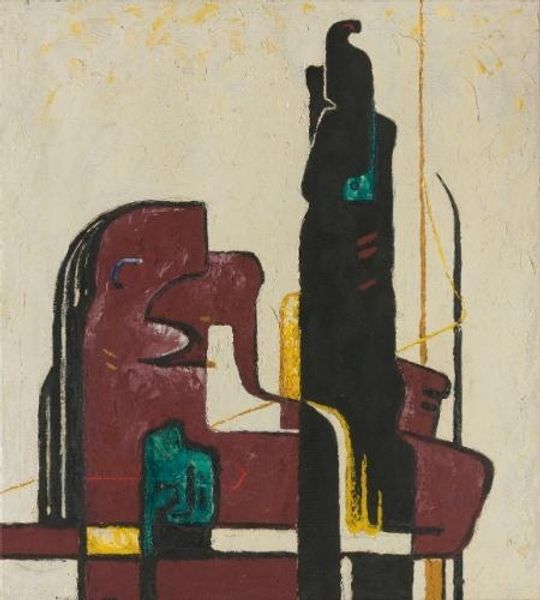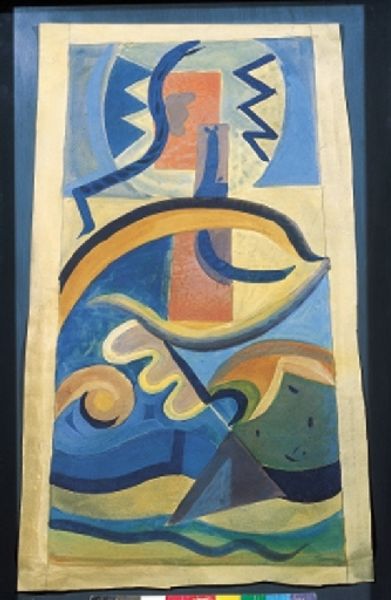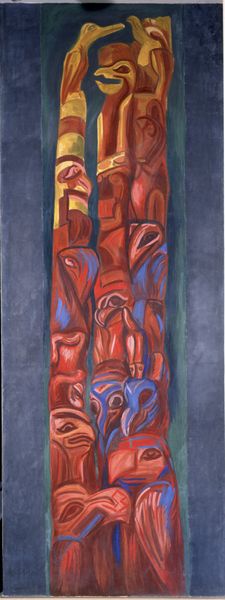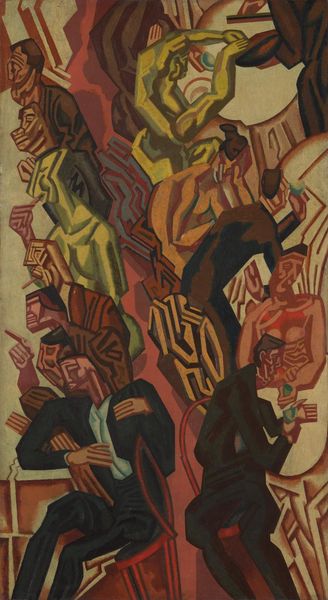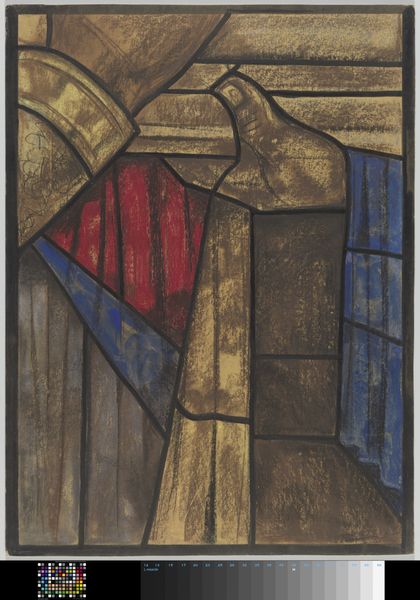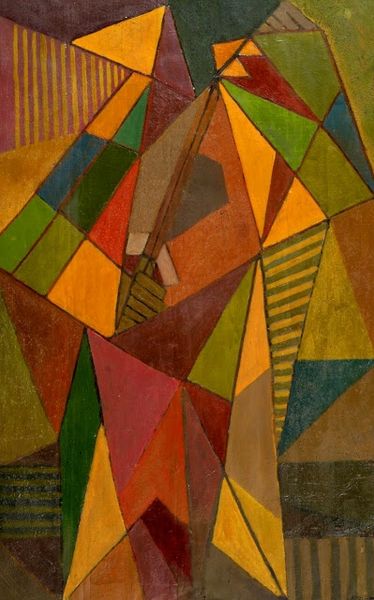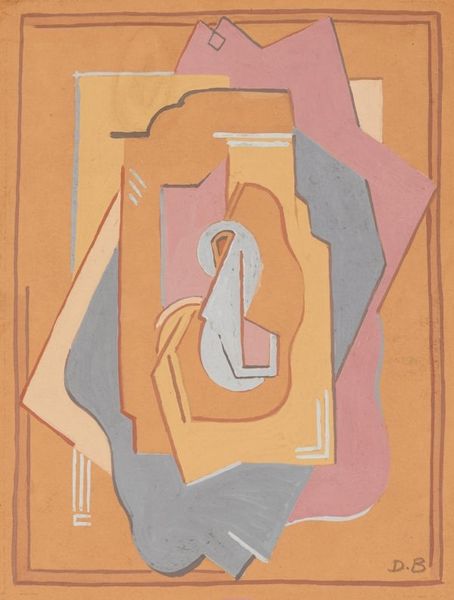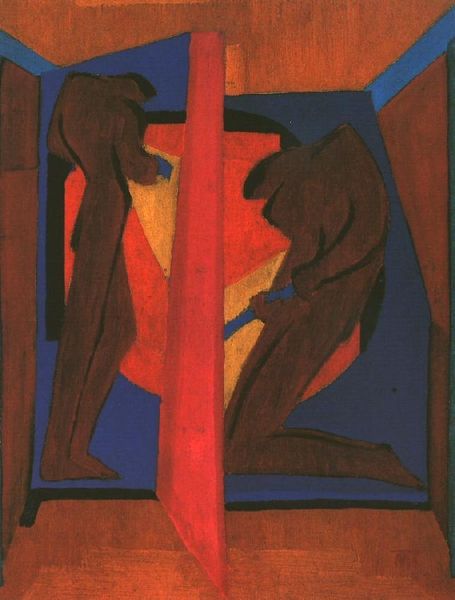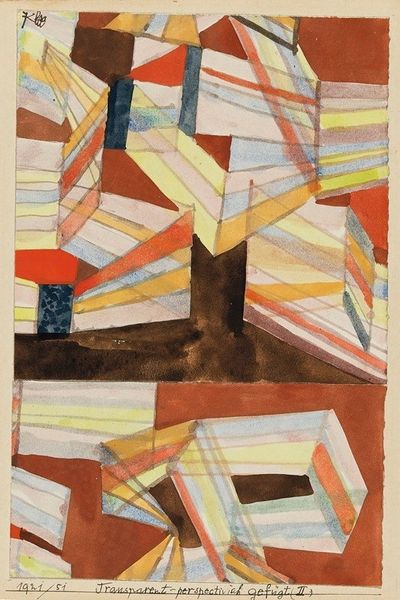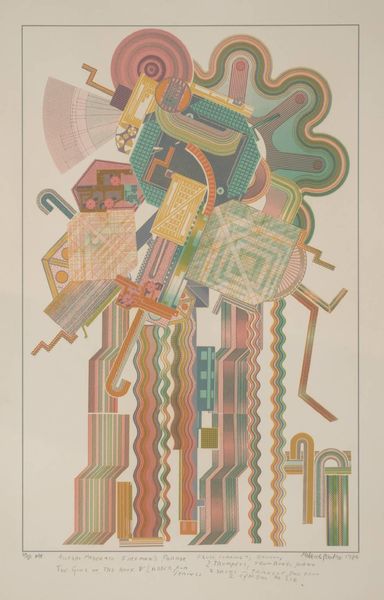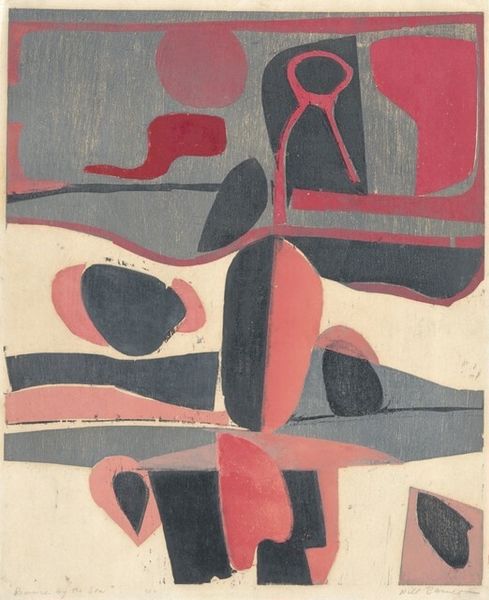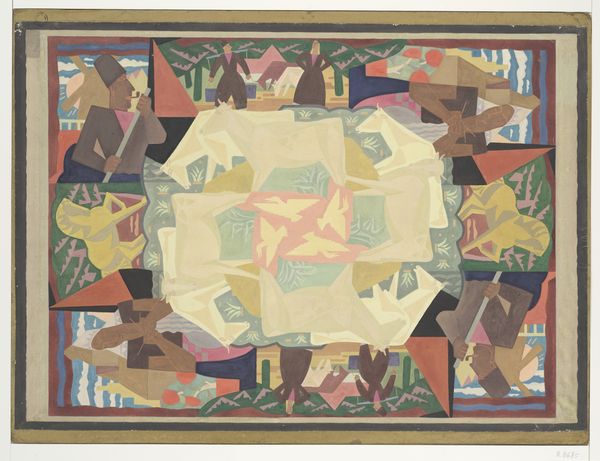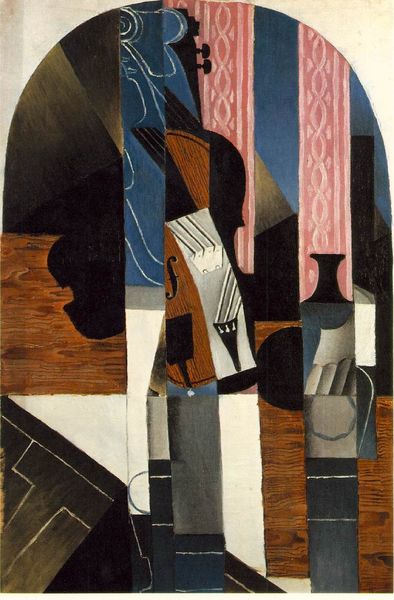
collage, painting, fresco
#
abstract painting
#
collage
#
narrative-art
#
painting
#
figuration
#
fresco
#
oil painting
#
geometric
#
abstraction
#
history-painting
#
modernism
Copyright: Janos Mattis-Teutsch,Fair Use
Curator: Let's consider "Assembly Line (fresco draft)" crafted around 1930 by Janos Mattis-Teutsch. It appears to be an exploration of labor, rendered through a modernist lens, a perspective reflecting the socio-political currents of the interwar period. Editor: My gut reaction? It's strangely… unsettling. All these angular figures, mostly depersonalized, seem caught in this never-ending climb or carry, a real meditation on repetition and maybe dehumanization? Is this the dream or the nightmare of industrial progress? Curator: It is interesting that you use the word “nightmare.” Mattis-Teutsch worked on it in a historical period when many artists began questioning the promises of progress, critically examining the role of labor within capitalist structures. Its aesthetic bears the hallmark of early 20th-century anxieties related to industrial mechanization, especially considering its proposed format as a fresco—traditionally a medium for grand narratives of heroism or faith. Editor: Right, the fresco format makes you expect something triumphant, maybe. But the color palette feels intentionally muted; these aren't celebratory hues. The artist sort of traps us in this space where we are forced to reckon with what “progress” really asks of workers. It really echoes Chaplin's “Modern Times”, doesn’t it? Is it also interesting that these are figures in ascension? Curator: Certainly. These repeating figures resonate deeply with theories around labor and alienation, how the individual can feel reduced to a mere cog in a much larger system. One wonders if Mattis-Teutsch was attempting to depict labor's inherent dignity. This piece seems poised between critique and potential affirmation. Editor: What stands out most to me is its raw honesty; its open refusal to sanitize the repetitive nature of work, where people almost fade into geometric abstractions themselves, reflections of what they manipulate or serve. It feels deeply resonant. Curator: Precisely. It avoids easy answers. "Assembly Line" reminds us of the perpetual need to reassess the human cost of progress, and in doing so, offers a poignant commentary relevant to today's socio-economic discussions. Editor: I walk away with a new understanding and maybe a new lens through which to watch a Charlie Chaplin movie, now—talk about resonance across art forms. Thanks for sharing this with me today!
Comments
No comments
Be the first to comment and join the conversation on the ultimate creative platform.
